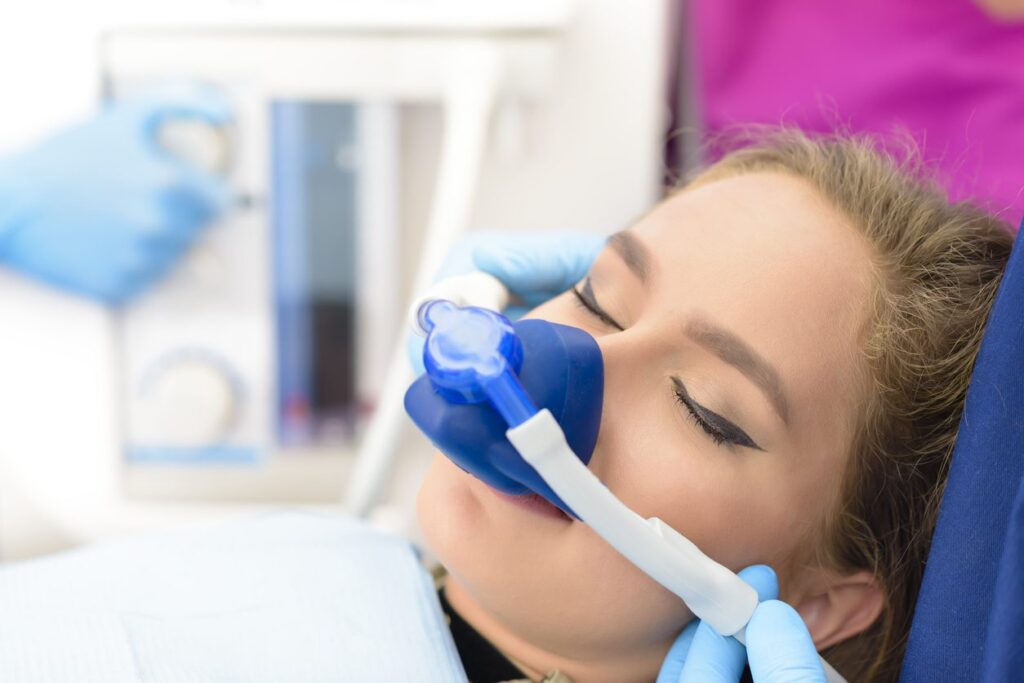Remember the “laughing gas” dentists would give you to numb the pain of getting a cavity filled? That is nitrous oxide. While there are legal and controlled ways to use the drug nitrous oxide safely, some people become addicted—but there is hope.
What Is Nitrous Oxide?
Nitrous oxide, also known as laughing gas, nitro, NOS, or whippets, is a colorless gas that has been used by dentists and medical professionals to sedate patients for over 150 years. However, it’s increasingly being used to create a dissociative high.
How Does Nitrous Oxide Affect the Body?
Let’s delve into some important drug information about nitrous oxide and how it works. The drug affects the body by stimulating the neuronal release of endogenous opioid peptides or dynorphins. In other words, nitrous oxide interferes with how your nerves speak to each other. It stops pain receptors from talking to your brain, which is how it stops you from feeling pain.
What Are the Short-Term Effects of Nitrous Oxide?
The most obvious result of nitrous oxide is giddiness, euphoria, and sometimes uncontrolled laughter, but it affects your body in more ways. This includes:
- Blurred vision
- Irritation in the eyes, nose, and/or throat
- Wheezing or worsening cough
- Confusion
- Sweating
- Lethargy
- Uncoordinated movements
- Seizures
However, larger amounts of nitrous oxide can lead to:
- Loss or rapid change in blood pressure
- Fainting
- Heart attack
- Stroke
- Death
In most cases, these short-term side effects will lessen as nitrous oxide leaves the body.
What Are the Long-Term Effects of Nitrous Oxide?
Prolonged exposure to nitrous oxide can cause lasting damage to your body because it continually disrupts your body’s normal neurological processes. Unlike the short-term effects, these repercussions may stay with an addict even after they gain sobriety.
- Memory loss
- Tinnitus (ringing or buzzing in ears)
- Incontinence
- Numbness in the hands or feet
- Birth defects
- Limb spasms
- Depression
- Psychosis
Consuming nitrous oxide is also risky because of how it is stored. The gas is usually stored at freezing temperatures (-40C). Consuming nitrous oxide directly can cause frostbite to the hands, nose, lips, throat, and vocal cords. Because high-pressure canisters store the gas, it’s also possible to rupture lung tissues.
Is it Possible to Overdose on Nitrous Oxide?
Yes. While nitrous oxide is safe when administered by a medical professional, it is possible to overdose on nitrous oxide.
What Are the Withdrawal Symptoms of Nitrous Oxide?
A recovering addict may experience typical withdrawal symptoms when quitting nitrous oxide. This will include symptoms similar to recovering from alcoholism or other drug addictions. Symptoms may include:
- Cravings
- Extreme mood swings such as irritability and depression
- Excessive sweating
- Insomnia
- Anxiety
- Restlessness
- Loss of appetite
- Vomiting and nausea
What Are Treatment Options for Addiction to Nitrous Oxide?
While it is possible to achieve sobriety and recovery alone, most people achieve better results when a trained medical professional leads the recovery process. Just like you wouldn’t stitch up a stab wound in your chest by yourself, you shouldn’t try to treat your addiction alone.
To help with your treatment, it’s important to be honest about your mental and physical health. The more honest you are about your past, including what you’ve used and how often you’ve used it, the better counselors and therapists will be able to help.
Treatment typically starts with a period of detox and sobriety, which then leads to a clean enough mind and body that behavior therapy, counseling, and other proven treatments can be used.
Pinnacle Treatment Centers Can Help
If you or a loved one suffers from addiction or addictive behaviors, Pinnacle Treatment Centers can help. We focus on residential treatment for substance abuse to give you the space you need to change your life. Contact us today to find out more about our programs.


